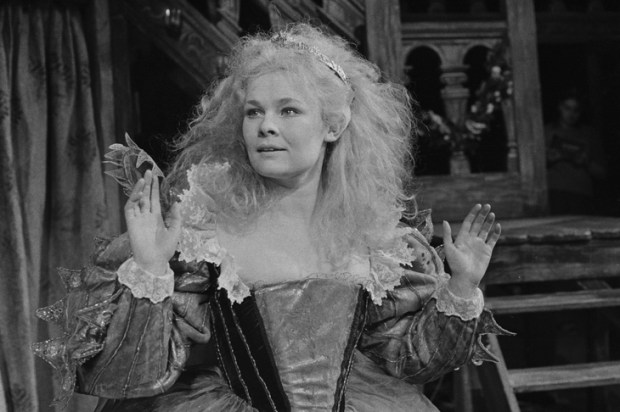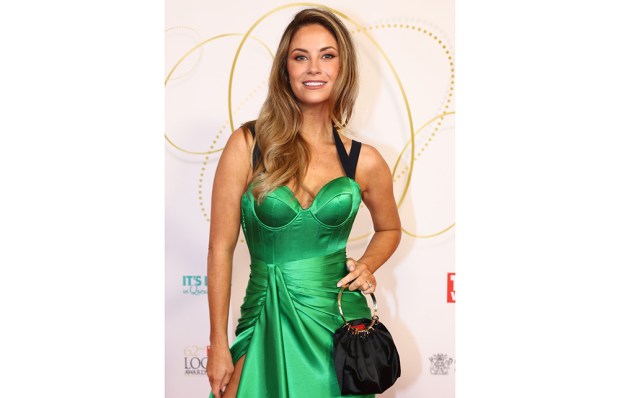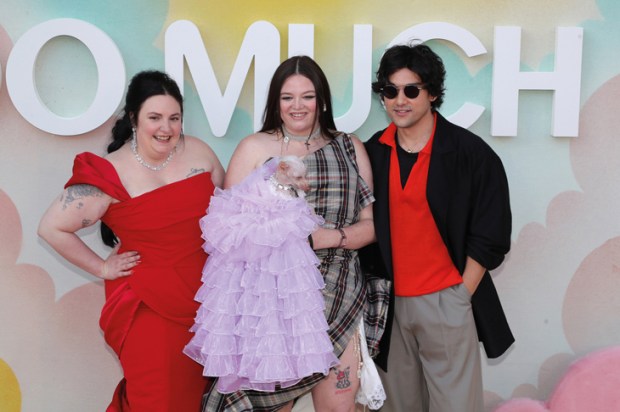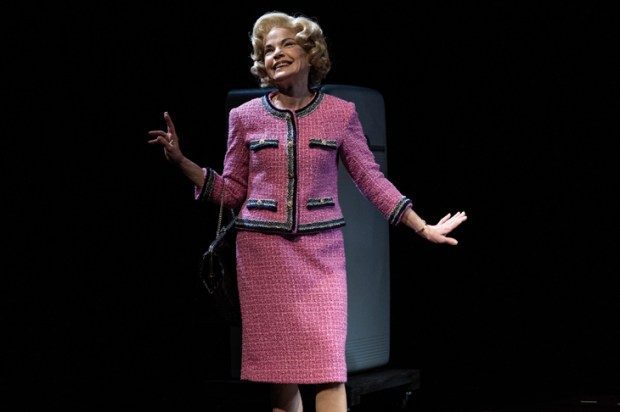If you live in the suburb of Hawthorn in the midst of all that leafy greenness, in the federal seat of Kooyong where Josh Frydenberg bit the dust for that Teal candidate Monique Ryan and where expectations are stirring about whether the bon bourgeoisie of Melbourne can hack any more of Daniel Andrews, Lord Lockdown, there is something like the greatest concentration of private schools in – what? – the southern hemisphere, the universe? One reminder of this was an edition, a hardback plastic covered for better preservation, of Tim Winton’s book of short stories, The Turning, going for a dollar or two at the op shop and neatly marked ‘Senior’. It roused thoughts that at Presbyterian Ladies’ College – where they had taken a dim view of their representation in Henry Handel Richardson’s The Getting of Wisdom, at Xavier with its Jesuit traditions, once stark and strict that might have encompassed the world of James Joyce’s A Portrait of the Artist as a Young Man, at Scotch, once famous as the toughest of boys’ schools, there were in fact rows of modern classics and contemporary literary fiction which were not deemed to be suitable for junior students.
Quite understandable that the librarians of these schools would not rejoice at the prospect of eleven-year-olds reading Ulysses or Women in Love or Lolita or Proust. Well, who would?
So why not put a ‘Senior’ stamp on The Turning? It does raise the question of how old you have to be to read Tim Winton unscathed. When that exceptionally toughminded English novelist Philip Hensher was asked what novel he wished he had written he replied, Cloudstreet.
Well, Cloudstreet that extraordinary transformation of magical realism (if that’s the word) which you could give to the kids as easily as Huckleberry Finn is the favourite novel of some multitude of people and the way in which it makes its magic seem like realism makes it in some ways a more original book than the other great English language books like Midnight’s Children that followed in the wake of such great South Americans as Márquez.
So what about The Turning? The title story is as dark and dazzling a piece of extended short fiction as the creative imagination could conjure. It is a staggering piece of writing. The epigraph to the collection is from T.S. Eliot’s Ash Wednesday and you could if you wished say The Turning was consonant with another quotation from Winton’s fellow Christian. In the last and the most elevated of the poems that constitute Four Quartets, ‘Little Gidding’, Eliot writes of ‘A condition of complete simplicity / (Costing not less than everything).’ But the gloss the Winton title story gives to those words is terrible in the massive and majestic sense that the Italians use that word – terribilità.
The outline is simple enough. A woman in a caravan park with a rough, rugged, sometimes violent husband and a couple of kids, meets another woman, a slightly unusual woman to be in this place with her soft Country Road towels, the silky boxers on the line, the modulated vowels and the suitcase husband. The couple she encounters are attractive gentle people working out their own peace with whatever truth might make sense of the universe.
That’s all you need to know, or more, about The Turning. But it is prima facie evidence of Winton’s vertiginous greatness as a writer. If you wanted 30 pages of fiction that could illustrate how contemporary Australian writing could equal the greatest work of Christina Stead or Patrick White this would be a real contender.
It can be such a thing of wonder when the art of a smaller country with a population like Australia hits the stars or penetrates the abyss of the soul’s dark night.
It’s hard not to get a sense of this from the photographs of Bill Henson, some of whose work is being exhibited in his Oneiroi show at Melbourne’s Hellenic Museum and which always has the sweeping deliberation of a great master who can embody a vision through the medium he has chosen so that the upshot is like the work of a great painter for all the formal differences.
You can get the same sense of something done with an utter passion with Richard Tognetti’s Australian Chamber Orchestra and it is fascinating to see him collaborating with Sam Adams (son of the Nixon in China John Adams) performing Echo Transcriptions which uses electric violins. All of this is part of Tognetti’s unceasing quest to deliver new acoustics from an electric violin sound without allowing the desired ‘American’ upshot to overwhelm Adams and his own love of restraint. Tognetti is one of those musical masters where there seems to be a total fusion between the quest for the striking and the desire to consolidate whatever austere aesthetic is necessary to music that does not simply indulge its own novelty.
Sunshine Super Girl the show at the Melbourne Theatre Company about Evonne Goolagong Cawley is a triumph and succeeds in being so while using a minimalist but a highly imaginative design. The first few rows of the stalls have been turned into the simulacrum of a tennis court and the entire show – which takes the great tennis player from childhood to her second victory at Wimbledon – is told with only five actors with Ella Ferris in the star role of the great sportswoman. The tennis itself is done brilliantly to music as a variety of dance and former members of Bangarra give it a beautiful grace and viability. We see the young girl fishing, we see the woman who refused to buy into politics playing in South Africa, she wanted at all costs to show that an Aboriginal woman could be a great sports star and these choices are presented with considerable vibrancy and vigour and versatility. This is a beautiful show which will please anyone who comes to it with an open mind. It represents an enchanting and arresting bit of staging and it presents the potential challenges to Goolagong Cawley’s politics coherently while never losing the glow of the portrait. It may all sound improbable but this is a lean and rich show which in the best sense is a winner.
Got something to add? Join the discussion and comment below.
You might disagree with half of it, but you’ll enjoy reading all of it. Try your first month for free, then just $2 a week for the remainder of your first year.













